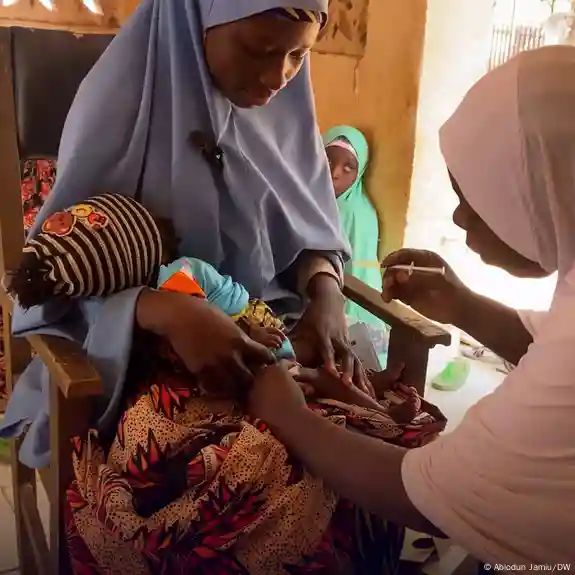Nigerian lawmakers have approved an additional $200 million for the country’s health sector to compensate for the recent suspension of US development aid.
The funds will be used to support programs combating malaria, polio, HIV, and tuberculosis, which previously relied on US assistance.
Nigeria, Africa’s most populous country with around 230 million people, has been a major recipient of US aid, benefiting from Washington’s support in disease prevention, vaccine distribution, and healthcare initiatives. The $200 million allocation is part of Nigeria’s newly passed $36.6 billion federal budget.
House Appropriations Chairman Kabiru Bichi emphasized that the funding would help “fill the gap” left by the US cuts, ensuring the continued provision of essential vaccines and medical supplies. However, opposition politicians criticized the budget increase, warning that it could worsen Nigeria’s debt crisis and heighten inflation and poverty.
The cuts come after US President Donald Trump, who returned to office last month, ordered a 90-day freeze on funding for the US Agency for International Development (USAID). He has also initiated moves to dismantle the agency, close its global offices, and lay off staff as part of his administration’s efforts to curb spending.
Trump has indicated that some funds may be restored after the 90-day review, but it remains unclear which programs will resume. Meanwhile, a federal judge has temporarily blocked the funding freeze, ruling that existing contracts must not be terminated or suspended.
USAID, which operates in 120 countries with a budget of $42.8 billion, provided over $600 million in health assistance to Nigeria in 2023. In addition to healthcare, US funds have also been used for humanitarian aid, including shelter and sanitation in Nigeria’s insurgency-affected northeast.
With uncertainty surrounding the future of US aid, Nigeria is taking steps to secure alternative funding to sustain critical health and humanitarian programs. However, concerns remain over the long-term financial implications of increasing government spending.

